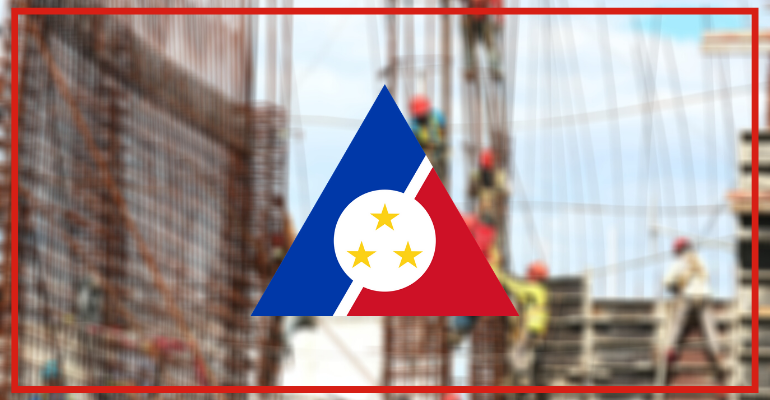(UPDATE: 11/4/2021) — Along with the government’s effort to financially assist those who were affected by the community quarantine as part of the preventive measure for the coronavirus disease (COVID-19) spread, the Department of Labor and Employment (DOLE) has launched programs such as CAMP and TUPAD #BKBK.
COVID-19 Adjustment Measures Program (CAMP) and Tulong Panghanapbuhay sa ating Disadvantaged/Displaced Workers (TUPAD) #Barangay Ko, Bahay Ko Disinfection/Sanitation project (#BKBK) are programs designed to assist the formal and informal sector workers affected by the Enhanced Community Quarantine.
RELATED: DOLE extends TUPAD up to 90 days to support beneficiaries
What is TUPAD?
Focusing on TUPAD, this program refers to a community-based package of assistance that provides emergency employment for displaced workers, underemployed, and seasonal workers, for a minimum period of 10 days, but not to exceed a maximum of 30 days, depending on the nature of work to be performed.
RELATED: DOLE: Bayanihan 2 to boost programs for workers amid Covid-19
The program may include but are not limited to Kasambahays, Angkas Drivers, Grab Drivers, Jeepney and other PUV drivers, Carinderia owners, Vendors, Dishwashers, Senior Citizens fit to work, and independent contractors.
However, individuals aged from 17 below are not allowed to apply under the Anti-Child Labor Law. Workers outside of the ECQ Regions who also lost their livelihood due to COVID-19 are also covered. Beneficiaries given financial assistance by their LGUs can still avail TUPAD #BKBK as long as the benefit will not exceed Php 8,000 in total.
It is also known as a counterpart of CAMP financial assistance, which assisted the formal sector workers.
Only the following types of projects can be supported with such assistance:
- Social community projects, such as repair, maintenance, and/or improvement of common public facilities and infrastructure such as schools and health centers, debris clearing, declogging of canals, debris segregation and materials recovery, stockpiling and clearing;
- Economic community projects like repair, maintenance and/or rehabilitation of farm-to-market roads, bridges, post-harvest facilities, public markets and common service facilities such as production and display centers, fish ports;
- Agro-forestry community projects, such as tree planting, seedling preparation, and reforestation.
4 TUPAD program categories
Listed below are the four (4) TUPAD program categories:
Emergency Response Method. This method will hire workers for 15 days to perform light work such as street sweeping and cleaning of public facilities; agro-forestry projects such as tree planting, seedling preparation, and reforestation, including planting or mangroves and bamboo in coastal communities; and other projects such as crop growing and vegetable farming that require preparation.
The workers under this method can also provide assistance to the local government units (LGUs) through the delivery of essential goods, and services, such as food and non-food items, packing/re-packing of relief goods, preparation, design, dissemination, posting of information and educational materials especially in rural areas, and other related tasks as may be assigned by the LGU; transport services for setting up of mobile markets and community disinfection/sanitation activities.
Labor-Intensive Method. Workers under this method will be hired for 45 days for social community projects such as de-clogging of canals, debris, segregation, and materials recovery, stockpiling, and clearing during the aftermath of a calamity/disaster, and waste management.
Labor-Based Method. This method will hire workers for 60 days to perform social community projects such as minor repair of common public facilities such as schools, health centers, bridges, construction of footpaths, bridge repairs; construction of water catchment, terracing, and planting for soil protection; and tide-embankments, pedestrian lane infrastructure, bike lanes/facilities, and support facilities.
Labor-Based Equipment Supported Method. Workers hired under this method will work for three months in government projects that require the use of equipment for the improvement of government facilities and infrastructures such as health centers, irrigation canals and facilities, roads, flyovers, underpass, evacuation centers, school buildings, drought-proofing facilities, flood mitigation structures, erosion reduction projects, major highway and bridge construction, and dredging activities.
They will also work in the economic community projects such as maintenance and/or rehabilitation of farm-to-market roads, bridges, post-harvest facilities, public markets, and common public facilities such as production and display centers, fish ports, among others to support the food system.
Eligibility, requirements, and benefits
Barangay captains, mayors, or other local government officials should facilitate the applications to the nearest DOLE Regional Office/ Provincial / Field Office. LGUs must prepare the following documents:
- Letter of Intent
- TUPAD Work Program
- List of beneficiaries
- Memorandum of Agreement (MOA) between DOLE and the Barangay/LGU. A contract of service is also accepted.
If the Barangay or local government unit (LGU) is not familiar with the process, you can reach out to the DOLE at the 1349 hotline.
For interested applicants, they must prepare the following documents:
Workers will need to go to your barangay office or municipality’s Public Employment Office to have their names listed in the beneficiaries. For groups, DOLE recommends the listing be done by a group representative.
For individual applications, send an email to your regional DOLE office. DOLE will conduct a quick validation with your LGU.
Note: You don’t have to be a registered voter of your barangay to avail of this assistance.
Meanwhile, the following are NOT qualified for the TUPAD program:
- Those who received Php 5,000 financial assistance from DOLE CAMP
- Those who received cash assistance from the Department of Social Welfare and Development
- Farmers who received cash assistance from the Department of Agriculture
- Beneficiaries of Php 8,000 and above from their Local Government Unit
- Government employees
Under the TUPAD program, beneficiaries will have access to the following benefits:
- Employment for 4 hours per day for 10 days;
- Payment of salary equivalent to one hundred percent (100%) of the prevailing private sector minimum wage in the area/locality;
- Coverage under group micro-insurance for the duration of the work contract to be shouldered by DOLE;
- Personal protective equipment (PPE) such as a hard hat, work gloves, mask, rubber boots, and long-sleeved TUPAD t-shirt which shall be mandatory in high-risk and hazardous works;
- Basic orientation on safety and health and; Free skills training, which the workers may avail voluntarily, to prepare them towards self or wage-employment;
- Personal accident insurance, a brochure on health and safety, and cleaning/disinfecting materials for barangay work.
Note: Only one member of a household shall be qualified to avail of the program and availment shall be only once a year.
For the payment of wages of the TUPAD beneficiaries, it will be sent via money remittance (Palawan Express), which will be organized by your LGU/ barangay. 50 percent of the payment will be given on the 5th day of work, and the remaining payment at the end of the 10-day working period. For areas with no money remittance available, your local government can coordinate with DOLE for a cash payout.
RELATED: HOW TO avail for DOLE-AKAP for OFWs financial assistance
With the conclusion of the employment project, the Technical Education and Skills Development Authority (TESDA) or its accredited training institutions will be tapped to conduct the skills training for the beneficiaries under its Training for Work Scholarship Program (TWSP).
Reviving TUPAD
Although the program concluded last June, helping over 962,000 workers in the informal economy, the DOLE plans to extend the program again soon.
Labor Undersecretary Joji Aragon revealed during a Laging Handa press briefing on July 29, saying they are aiming to make TUPAD “more relevant” amid the COVID-19 pandemic.
“Under the Bayanihan 2, we will reconfigure our programs to help defeat COVID-19,” she said.
Contact tracers, data encoders, and occupational safety and health (OSH) inspectors are just some of the jobs the DOLE will be offering under the emergency employment program.
According to Aragon, contact tracers and data encoders can help in identifying COVID-19 patients, as well as their close contacts, while OSH inspectors can help ensure compliance of business establishments to the safety guidelines DOLE released.
“Our programs will be more relevant that while we assist and provide relief to workers, we also want to help in the recovery phase by having more relevant activities,” she said. – WhatALife.ph



Leave a Reply